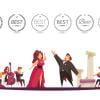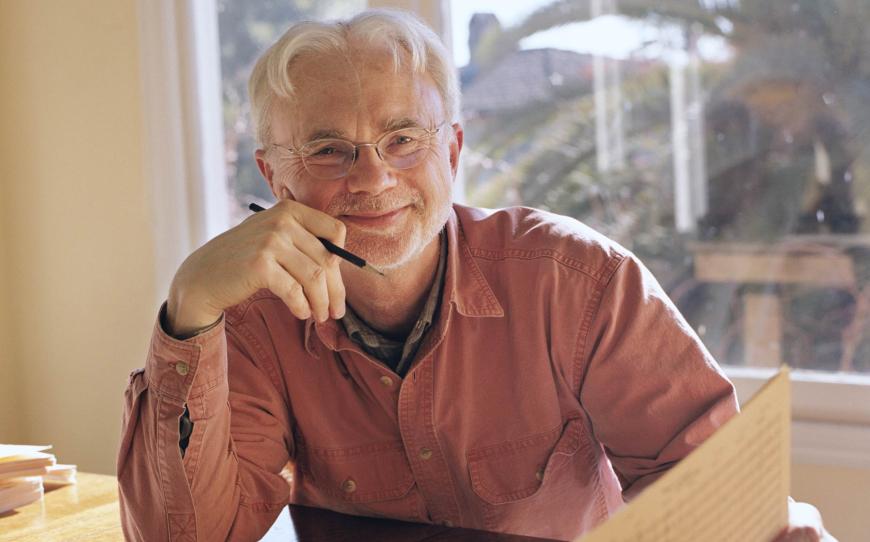
Girls of the Golden West, the sprawling Gold Rush opera by John Adams and Peter Sellars, opened at the War Memorial Opera House on Nov. 21, 2017. By the end of the first performance, Adams was already thinking about revisions.
The result of that editing process (including an entirely rewritten ending for Act 1, depicting a lynch mob of angry miners bent on revenge against the local Indians) was performed by the Dutch National Opera in Amsterdam on Feb. 28, 2019. But for Adams, that was far from the end of the revisions.
On Jan. 27 and 29 at Walt Disney Concert Hall, Adams will conduct original cast members Julia Bullock, Davóne Tines, Paul Appleby, Hye Jung Lee, Elliot Madore, and Ryan McKinny, with the Los Angeles Philharmonic and the Los Angeles Master Chorale, in what could be called the opera’s third world premiere. The concerts will be recorded by Nonesuch Records for release in late 2023. In addition, CalArts’ REDCAT theater will present the documentary Land of Gold, about the making of the opera, at 8:30 p.m. on Jan. 28.
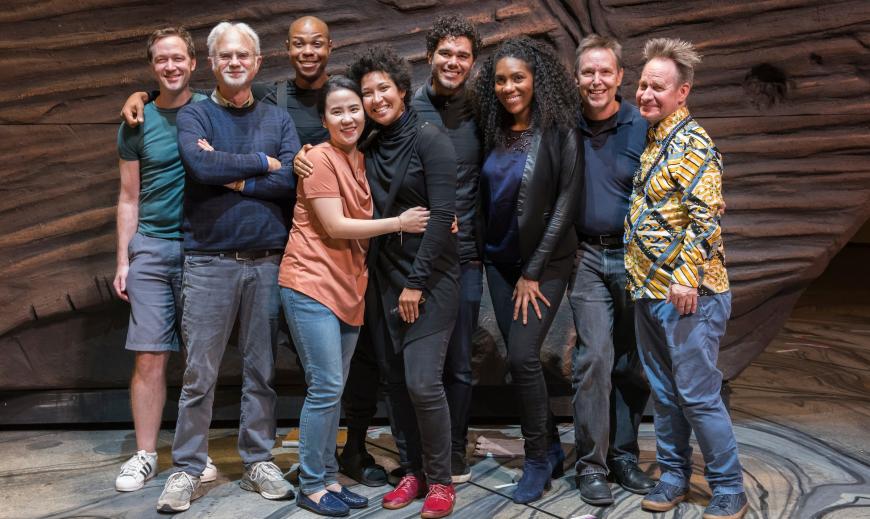
“I’ve done nothing but Girls of the Golden West since November,” a discernably tired Adams said Monday from his home in Berkeley. “I’m not burned out. I’ll be burned out after next week.”
When asked if this was essentially the same version that was performed in Amsterdam, the composer’s answer was a definitive “no.”
He explained: “It was way too long in San Francisco and Amsterdam. The stories are still great, but it’s considerably shorter now. I’ve made significant changes that I think really focus on the fates of these characters. In my studio at home, the first act now runs about an hour; the second act is about 70 minutes. But when you get on stage, it’s impossible to tell. We’re also recording, so I’ve told the singers to be on book and just sing. We’re not doing any kind of staging. Of course, it’s wonderful to see a full production, but in the past, I’ve had some of my best experiences with limited concert versions.”
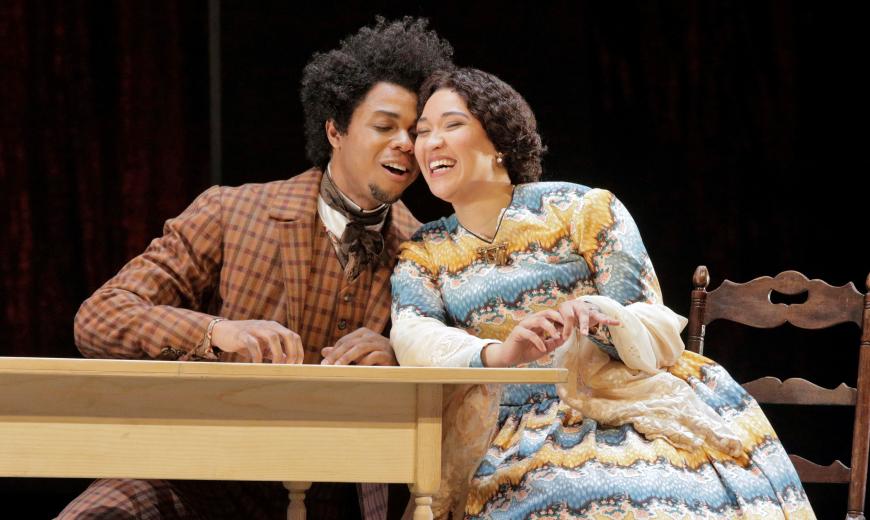
Adams described the difficult process of deciding what cuts were necessary, such as doing away with the flamboyant scene where the character Lola Montez performs her notorious “Spider Dance” and the calm-before-the-storm love duet that previously ended Act 1.
“I liked the way the first act ended. It was very serene and touching before all the violence that comes in Act 2. But I was listening to my audiences, and many, many people thought the first act was just a lot of people either talking to themselves or talking to the audience. On opening [night] and every other performance, I could feel this deflated mood in the audience. So, I wrote a completely different ending that’s based on a newspaper account of these miners that went on a revenge spree.”
The character Joe Cannon now sings the following at the close of Act 1:
Who’s with us? Got backbone?
Extermination! Determination!
They robbed my camp.
They killed my friend.
I’m gonna hang those Indians!
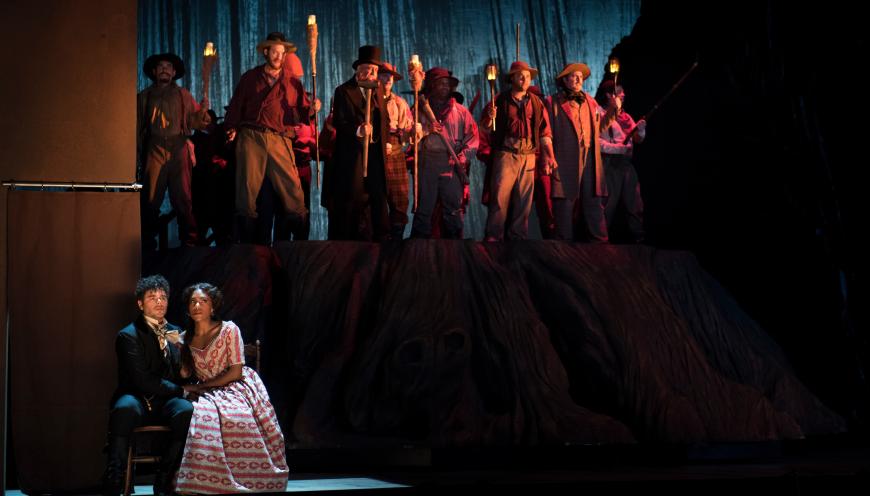
Sadly, Adams conceded, the new ending resulted in the loss of the gentle duet.
“That’s what comes with revisions,” he said philosophically. “I had to say to the singers, ‘Don’t take it personally.’ Look, when I was going to college, the last thing you would admit to is caring about your audience. I always thought that was wrong. I once heard that Oscar Hammerstein [II] would go to the 300th performance of a show and take notes about how the audience reacted. Verdi spent almost half his adult life revising his operas. Once his operas were up on stage, he was always sensitive to how the music felt and how people reacted.”
Adams admits that the response to the opening of Girls of the Golden West in San Francisco hit him hard.
“When I was composing it, I felt this very well could be the California opera and that 100 years from now people would look at it as a statement about our culture. But it was not well received, and I was really devastated by the reaction. I think part of that was my fault, that it was too long. Part of it was Peter’s fault, that the libretto was too talkative and there wasn’t enough engagement between the characters. I was determined to fix it. I love the music. The idea of taking these Gold Rush song lyrics and setting them to the type of music I write was very original. I think it’s the most complex opera score I’ve ever written, and I hope this new version will turn things around.”
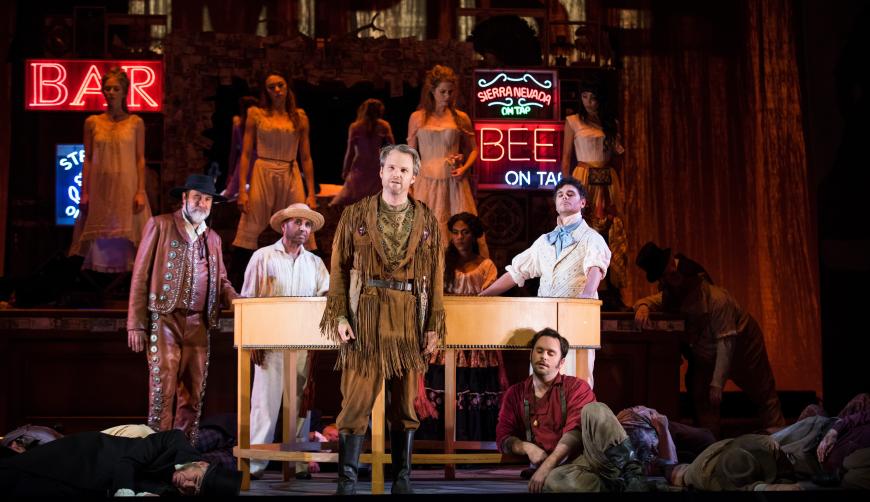
Here is an example of the rhythmic lyrics that Adams himself wrote for the new first-act ending, turning exotic names of California mining camps into a kind of rough-and-tumble litany:
Comin’ up from Red Dog
Crossed the ford at Rolling Log
Lost my shirt at You Bet
Empty pocket’s all I get
Sick and lame at Bed Bug
Down with the croup at Broken Jug
Broke my arm at Wild Goose
Sold my claim at Hangman’s Noose
Seen a man shot at Groundhog’s Glory
Worms in the bacon at End of Story
Lost a tooth at Humpback Slide
Cursed my luck at Nothing to Hide
“This has been one of the hardest things I’ve ever done,” Adams said. “I started work on it while Antony and Cleopatra was still running, and I’ve been working on it almost every day since. Who knows, maybe 100 years from now someone will stage the San Francisco version, the Amsterdam version, and the L.A. version.”




